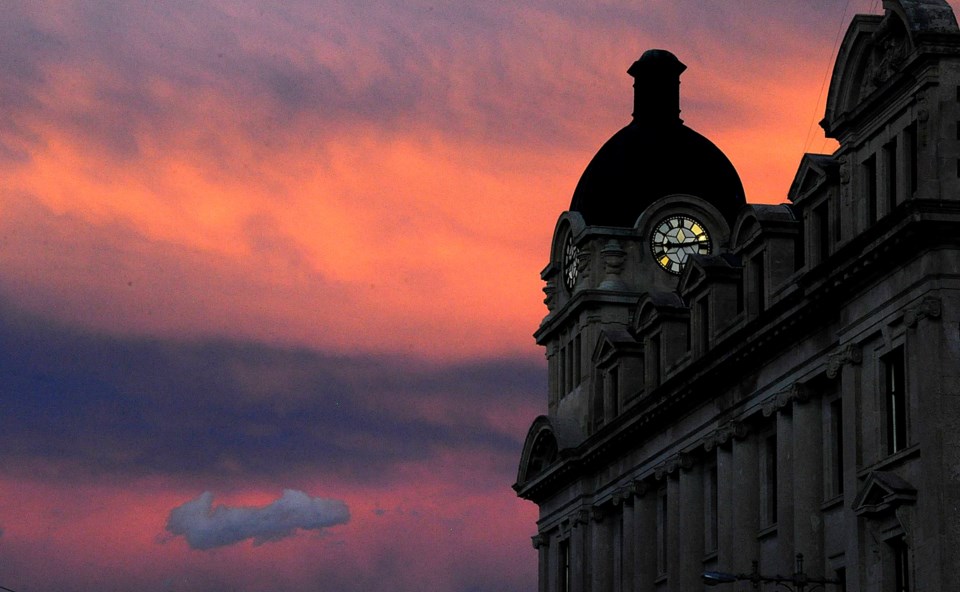MOOSE JAW — City council has paused approving a new stormwater utility bylaw and wants more time to review it because of some concerns that members and taxpayers have with the wording.
Coun. Jamey Logan, who owns several businesses, spoke against several clauses in the proposed bylaw during council’s June 23 regular meeting.
Some of his concerns included:
- Property owners with buildings that are over 300 square metres in size or with parking lots over 1,200 square metres must tie into the stormwater system; Logan said this may cost $50,000 to $100,000 and may send the wrong message to builders
- Owners must connect to the system within 60 days of notification from the city, otherwise, the city will connect at the owners’ expense; Logan wanted older buildings “grandfathered” into the system, otherwise, owners may be forced to spend money digging up their lots
- Where there is no adjacent stormwater main, the owner must submit a drainage plan to the city before construction or development; Logan was worried that this may turn off developers from building here
- The city manager has the discretion to exclude certain properties from paying the fee; Logan was worried that this could be a problem if the city manager and the landowner dislike each other
- The city manager’s decision is final and property owners cannot appeal it
- The city may disconnect a property from the system if the owner fails to pay the monthly fee or violates the bylaw, while a designated officer from the city may enter any property to disconnect it from the system
“I’m not against the concept, I’m just worried about the wording and I think we can come up with better solutions,” Logan added.
City manager Maryse Carmichael said administration used external legal counsel to create the bylaw, which is similar to Saskatoon’s. Also, because the utility fee is $9.80 per month, administration thinks the city manager should have the sole power to approve or deny exemptions instead of sending the request to council.
Derek Blais, director of community services, said many clauses in the proposed utility bylaw are already in the building bylaw. So, administration is transferring some clauses from the latter to the former and will soon present an updated building bylaw for approval.
“If that’s the case, then great. It just looks more strict than the way you’re explaining it … ,” said Logan. “Maybe I’m overthinking it.”
Coun. Chris Warren said council and city hall received emails from concerned residents days before the meeting, while they heard from two concerned taxpayers during the meeting. He thought many people were failing to understand the proposed bylaw’s purpose, even though information had been shared at previous meetings.
Meanwhile, he said the new utility would generate revenue to be self-sustaining, while it would reduce the operating budget by $326,000 and cut 0.75 percentage points from the mill rate. It would then generate that amount for the city.
Warren also thought council should allow more properties to be exempt — such as agricultural land, parks, cemeteries and community gardens — since the only ones listed were city-owned streets, roadways or spur lines.
Blais replied that including the agricultural land made sense, while the other property types were excluded since most owners either directly or indirectly relied on the stormwater system in their everyday lives.
Continuing, he said his biggest concern with grandfathering in unconnected properties was the potential “drastic reduction in revenue” with the utility. Blais noted that many older neighbourhoods are not connected to the storm network and have other site drainage plans.
“So, if we’re taking a significant portion off of this, is it really accomplishing what we’re setting out to do?” he added.
Coun. Patrick Boyle said council approved the utility’s creation because the stormwater infrastructure is “dilapidated,” crumbling and, in some cases, being held up by pieces of wood. This poses a flooding risk to the community.
Continuing, he said the city has not seriously invested in, or performed significant rehabilitation on, this infrastructure over the past 30 to 40 years. Also, the annual $326,000 contribution has not kept pace with a collapsing system.
Boyle compared this situation to the cast iron replacement issue, where the city was “bleeding millions” of dollars until it could replace most of those underground pipes. He added that the “conscious choice here” was to approve a financially self-sustaining utility before the infrastructure negatively affected revenues and expenses.
“… I’m in favour of the concept, but the bylaw has to be right,” said Coun. Heather Eby. “We don’t want something that hamstrings us next year or in 10 years.”
Council then voted unanimously to table the issue to the next executive committee meeting.
The next regular council meeting is Monday, July 14.




